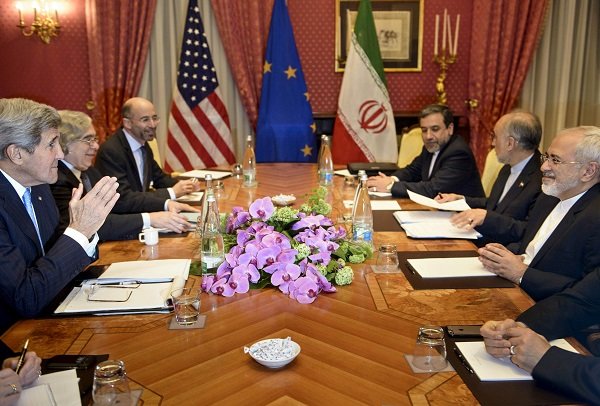
President-elect Joe Biden is eager to re-enter the Joint Comprehensive Plan of Action (JCPOA), better known as the Iran nuclear deal. He also claims that the Biden administration will restore US global leadership and respect alliances. The two are not exactly compatible.
First, the
deal: The JCPOA placed weak restrictions on Iran’s nuclear program, paving a
path to a nuclear weapon in as little as 10 years. If the US plans to re-join the
agreement, it must address the deal’s most crucial flaws — its sunset clauses,
which will automatically lift existing restrictions on Iran’s military and
nuclear programs. The deal also allocated the Iranian regime $150 billion in
sanctions relief. Rather than use the money to help their crippling economy, Tehran
used the funding to enhance its regional aggression, bolstering its support for
Hamas, Hezbollah, and the Iranian Revolutionary Guard Corps’ inter-continental
ballistic missile program. If that happens again, that will be bad news
for everyone.

Second,
alliances: US partnerships in the Middle
East have been invaluable, serving as launching points for conflicts as far
afield as Afghanistan, not to speak of interventions against al Qaeda and ISIS
in Iraq, Syria, and Yemen. Absent those friendships, with admittedly flawed
friends, the task of deterring an increasingly reckless and dangerous Iran
would be close to impossible. And if a Biden administration hopes to keep US
rivals China and Russia out of the Middle East (insofar as possible after Team
Obama invited Russia in), Israel and the Sunni Arabs will be imperative allies.
Should a new phase of the Iran deal afford Iran the latitude to attack its neighbors
directly or via proxies, the odds of Israel and the Gulf embracing a more
dangerous unilateral or Russia/China allied policy will rear its ugly
head.
If the Obama administration’s treatment of allies is any guide, the future looks rocky for US alliances. The Obama-Biden administration covertly brokered the JCPOA with President Rouhani, deliberately excluding Israel and the Gulf states. Obama had hoped the deal would have been a bridge to a more balanced and stable Middle East. Unfortunately, his high-risk political gamble failed. As a result of the deal, first the Obama and then the Trump administration had to take unwise steps to rebalance the region, including throwing US weight into Saudi Arabia’s conflict in Yemen. Iran has already sworn not to allow a renegotiation of the JCPOA, and it has demanded reparations for monies “lost” during the Trump term. This bodes ill for a successful reopening of the US-Iran bromance.
Biden has attempted to draw a sharp distinction between his own and Trump’s style. But style is little more than changed rhetoric. Actual commitment to alliances demands securing at once a better deal from Tehran and preserving the partnerships in the Middle East that serve American interests. And on that front, there is little reason for optimism.
Allison Schwartz is the communications assistant for AEI’s Foreign and Defense Policy department.
The post Fixing the Iran mess without alienating allies is going to take more than talk appeared first on American Enterprise Institute – AEI.
